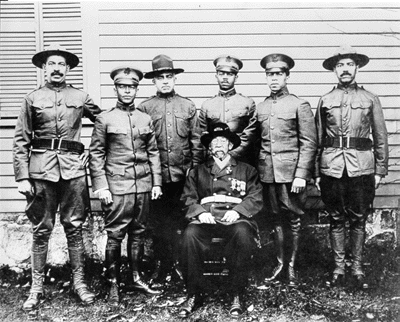
"With Diary of a Contraband: The Civil War Passage of a Black Sailor, William B. Gould IV has delivered something both inspirational and of real consequence to the world of American history. ...the reader is able to look back over 140 years and view the life of a slave who seized his freedom and embarked on a journey rich in historical significance and overflowing with personal drama and danger."
-from the Foreword by Senator Mark O. Hatfield
The
heart of this book is the diary of the authorís great-grandfather, William
Benjamin Gould, which he kept during his service in the United States
Navy in the War of the Rebellion between 1862 and 1865. William B. Gould
escaped from slavery in Wilmington, North Carolina, in the fall of 1862,
and boarded the U.S.S. Cambridge off Wilmington within a day of his escape.
One of the only known diaries of an African American sailor in the Civil
War, this fascinating document discusses his service and life as a sailor
on the Cambridge and later on the U.S.S. Niagara, which took him
from the northeastern U.S. to Great Britain, Holland, Belgium, Spain,
and Portugal.
In a tone often both
understated and sardonic, the diary includes observations about slavery,
race relations, the War of the Rebellion itself, the colonization of blacks,
and the pardons given to Confederates after the war, as well as numerous
references to meetings and correspondence with those who were trying to
lobby for and promote a good Reconstruction policy in the South (many
of William B. Gouldís associates became prominent in Republican politics
in North Carolina at the warís conclusion). Though not particularly introspective,
the diary also speaks of loneliness at sea, particularly his frustration
over lack of correspondence from Cornelia Williams Read, whom he married
within two months of his discharge from the Navy in Massachusetts in late
1865. It also speaks sometimes about personally difficult or embarrassing
circumstances, and sometimes about gaiety, meetings, and concerts, and
the people who attended them.
Introductory material by William B. Gould IV provides background on William
B. Gouldís life and history, and an epilogue describes the latter's
life in Dedham, Massachusetts from 1871 through 1923 as a skilled tradesman,
mason, and contractor, his role as a founder of the Episcopal Church of
the Good Shepherd in Dedham, and, in particular, his role as a leader
in the Grand Army of the Republic in Massachusetts.
For more information, please contact: Jana Unkel, Marketing Assistant, 521 Lomita Mall, Stanford, CA 94305-2235 or visit our website: www.sup.org

